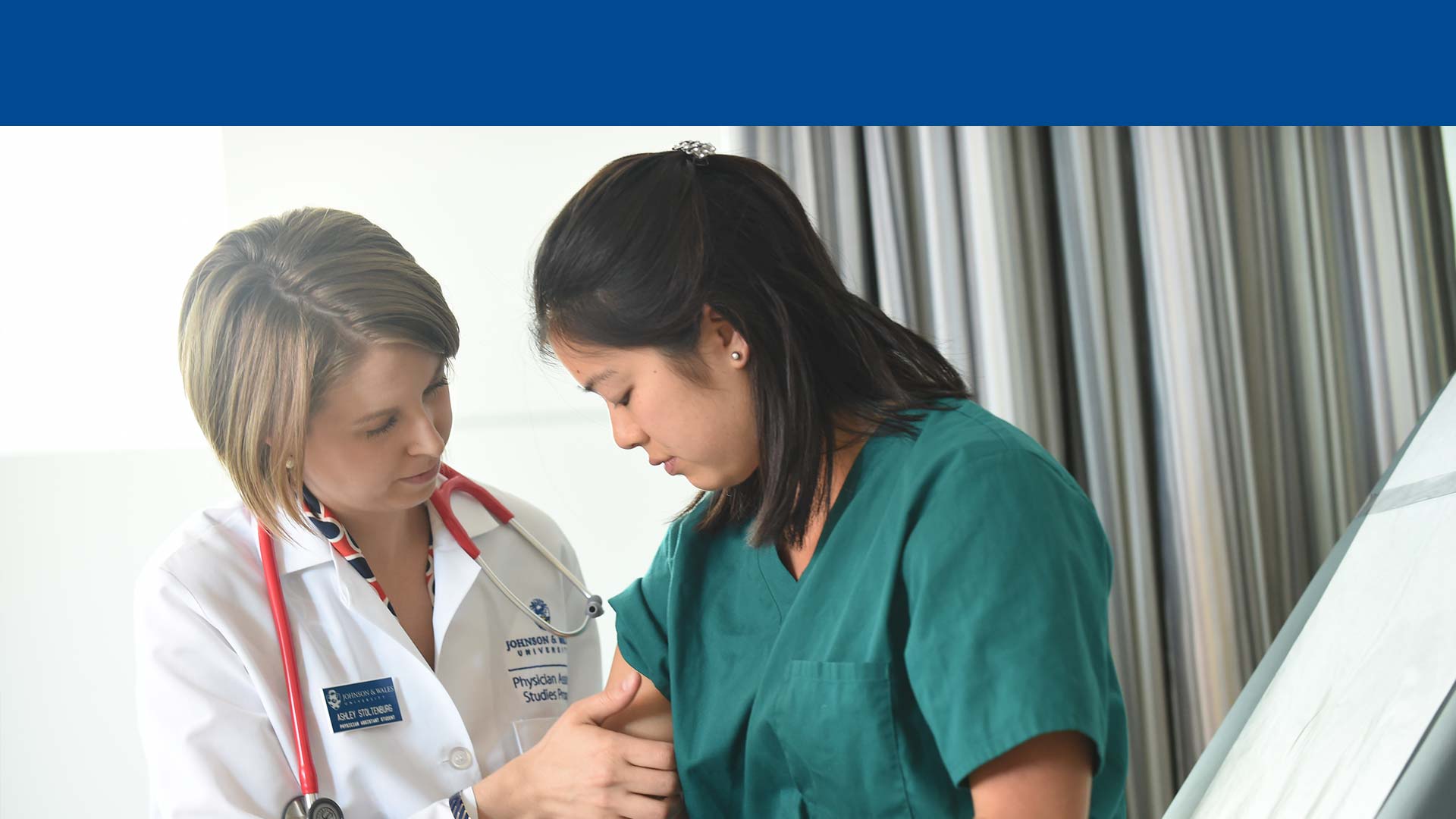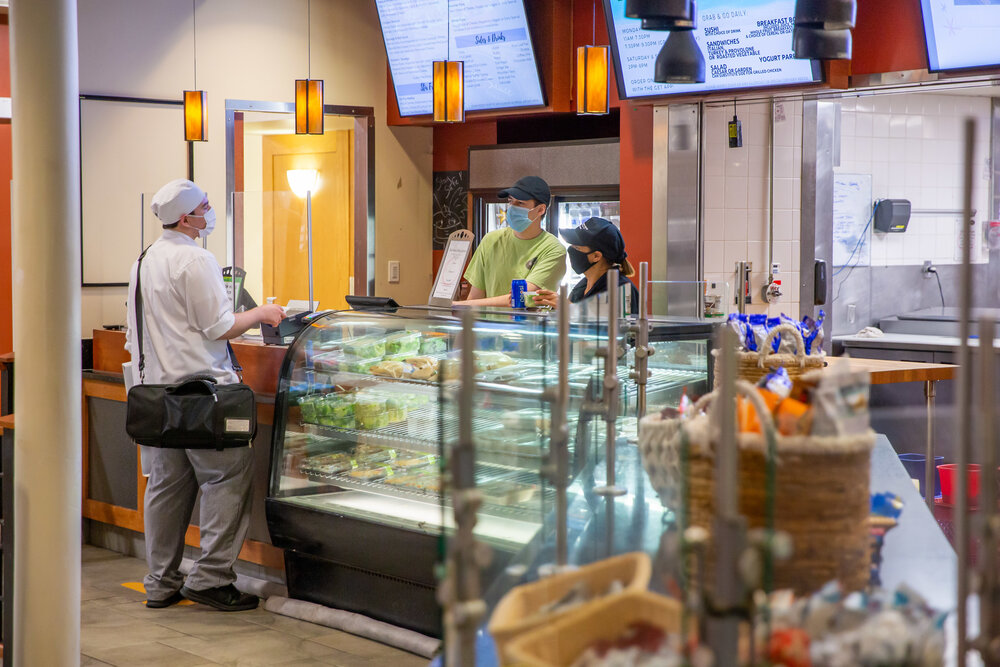01.12.23 - Best Practices: At the beginning of 2023, the state of Rhode Island announced another uptick in COVID-19 cases. Based on this and on information from the Centers for Disease Control and Prevention, the university reminds everyone of healthy practices to maintain a safe learning and living environment on our campus: anyone who feels ill is advised to stay home and contact Health Services or their healthcare provider. CDC recommends that people in "high" counties wear high-quality masks while in crowded, indoor public settings. (Please note: this is a recommendation, not a requirement.)
The university continues to strongly encourage COVID-19 booster shots as soon as an individual is eligible following the final dose of their initial COVID-19 vaccine series. Any unvaccinated member of the JWU community is required to submit a medical or religious exemption. The Centers for Disease Control and Prevention (CDC) advise that vaccines remain the best public health measure to protect people from COVID-19, slow transmission, and reduce the likelihood of new variants emerging.
Mask-wearing, regardless of vaccination status, is optional and no longer required inside or outside buildings on campus. However, anyone who feels more comfortable wearing a mask (KN95 recommended) is fully supported in doing so. Masks are still required in Health Services offices. Students, faculty and staff should still carry a mask on them at all times. You can find more on which masks work best and what is recommended here (updated by CDC January 2022).
03.16.22 - Guidance for Mask Wearing: As of March 18, 2022, mask-wearing, regardless of vaccination status, is optional and no longer required inside or outside buildings on campus. However, anyone who feels more comfortable wearing a mask (KN95 recommended) is fully supported in doing so. Masks are still required on university transportation vehicles (Wildcat Wheels) and in Health Services offices. Students, faculty and staff should still carry a mask on them at all times. You can find more on which masks work best and what is recommended here (updated by CDC January 2022).
Johnson & Wales University is pleased to have 92% of students and 97% of employees – who work or appear on campus - fully vaccinated against COVID-19. While the Centers for Disease Control and Prevention (CDC) continue to study COVID-19, it is advised that vaccines remain the best public health measure to protect people from COVID-19, slow transmission, and reduce the likelihood of new variants emerging. Students, faculty and staff are strongly encouraged to get their booster shots when elligble.
01.25.22 -Johnson & Wales University is pleased to have 89% of students and 94% of employees – who work or appear on campus - fully vaccinated against COVID-19. With this, we are still taking reasonable precautions on campus and routinely testing students and employees who have received a medical or religious vaccine exemption. JWU is also testing students who report symptoms of COVID-19 or are identified as having been in close contact with someone who has tested positive for COVID-19.
Johnson & Wales University has made the decision to cease public weekly reporting of positive cases. At this point, experts say that the high infection rate of the Omicron variant – paired with vaccination and past infection – could shift COVID-19 from pandemic to endemic, making it no more infectious than a common cold, according to the CDC. Our positivity rate has remained below any cause for concern. Though we will no longer report these numbers on this site, we will continue to track them for our own records and report them to the Rhode Island Department of Health.
08.27.21 - Students, faculty and staff who are not fully vaccinated against COVID-19 must participate in mandatory surveillance testing on assigned testing days. Along with hand washing, physical distancing, the daily screening questionnaire, and face masks, this is a key way to keep our campus community healthy & safe. Any unvaccinated member of the JWU community will be assigned to a group and participate in testing every four weeks. If you do become fully vaccinated, you will no longer be required to participate in sentinel testing.
08.06.21 - Masks must be worn inside public places on JWU’s campuses until further notice, regardless of vaccination status. On July 27, the CDC (Centers for Disease Control) revised its guidance on mask-wearing to maximize protection from the Delta variant and prevent possibly spreading it to others. The CDC now recommends that all persons, whether fully vaccinated or not, wear a mask indoors in public if located in an area of substantial or high transmission. Currently, Rhode Island and Charlotte are both areas of substantial or high transmission, but that is subject to changes as circumstances evolve. All persons should continue to wear a mask where required by laws, rules, regulations, or local guidance.
In addition to requiring students to be fully vaccinated, the university is now requiring all faculty and staff to be fully vaccinated. Faculty and staff must have received at least one dose of the vaccine by August 30, the first day of classes, and must have received all manufacturer-recommended doses of the vaccine by September 30. Faculty and staff will be required to provide Human Resources with a copy of their vaccination card. Faculty and staff who work fully remote and do not come to campus are not required to be vaccinated but are strongly encouraged to get vaccinated.
A reminder to all: you must monitor and abide by evolving local, state, and federal guidelines and requirements as well as university policy related to COVID-19. Also, do not go to campus if you have COVID-like symptoms or if you have tested positive for COVID-19; also please inform your supervisor immediately.
A reminder to all who have not yet been vaccinated: you must monitor and abide by evolving local, state, and federal guidelines and requirements as well as university policy related to COVID-19. This includes the requirements that you continue to: 1) wear a mask when you are indoors on campus; 2) report to your supervisor COVID-like symptoms or if you have tested positive for COVID-19 - do not go to campus; 3) isolate from others if you have tested positive for COVID-19 or quarantine if you have been exposed to COVID-19; and 4) participate in sentinel testing.










